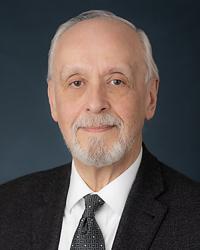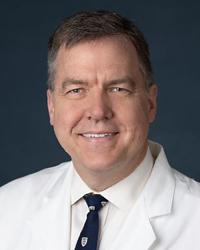Research Lab Results
-
Richard Chaisson Lab
Research in the Richard Chaisson Lab primarily examines tuberculosis and HIV infection, with specific focus on global epidemiology, clinical trials, diagnostics and public health interventions. Our recent research has involved evaluating a molecular diagnostic test for tuberculosis in HIV patients; observing TB responses during treatment of pulmonary tuberculosis; and examining antiretroviral therapy adherence, virologic and immunologic outcomes in adolescents compared with adults in Southern Africa.
-
Robert Bollinger Lab
The key research interests in the Robert Bollinger Lab include identifying biological and behavioral risk factors for HIV transmission as well as characterizing the clinical progression and treatment of HIV and related infectious diseases. We also have a long-standing interest in optimizing health care capacity and delivery in settings with limited resources. Our work includes implementing science research projects to explore the effectiveness of initiatives such as task-shifting, clinical education, distance learning and mobile health programs as a way to improve health care in these locations.
-
Robert H. Brown Lab
Work in the Robert H. Brown Lab explores several topics within pulmonary physiology, with a long-term goal of understanding the structural changes in the lungs that lead to the pathophysiology of lung disease. Our core studies examine the structure-function relationship of pulmonary airways and vessels as well as their role in chronic obstructive pulmonary disease (COPD) and reactive airway disease. Recent research has involved studying the mechanisms and treatment of COPD progression, new methods for treating asthma, and lung inflation and airway hyperresponsiveness. We are also exploring the impact of HIV infection on the etiology of lung disease and the pathophysiologic consequences of lung distention. -
Ronald Schnaar Lab
The Ronald Schnaar Lab is involved in the rapidly expanding field of glycobiology, which studies cell surface glycans, lectins, and their roles in cell physiology. Current projects in our lab study include (1) Glycans and glycan-binding proteins in inflammatory lung diseases, (2) Ganglioside function in the brain, and (3) HIV-Tat and HIV-associated neurocognitive disorders.
-
Richard Moore Lab
Research interests in the Richard Moore Lab include clinical epidemiology, costs, cost-effectiveness and outcomes of HIV/AIDS. We recently examined whether the effect of delaying antiretroviral therapy initiation in HIV-positive adults is modified by age at entry into care.
-
Robert Siliciano Laboratory
Research in the Robert Siliciano Laboratory focuses on HIV and antiretroviral therapy (ART). ART consists of combinations of three drugs that inhibit specific steps in the virus life cycle. Though linked to reduced morbidity and mortality rates, ART is not curative. Through our research related to latently infected cells, we've shown that eradicating HIV-1 infection with ART alone is impossible due to the latent reservoir for HIV-1 in resting CD4+ T cells. Our laboratory characterized the different forms of HIV-1 that persist in patients on ART. Currently, we are searching for and evaluating drugs that target the latent reservoir. We are also developing assays that can be used to monitor the elimination of this reservoir. We are also interested in the basic pharmacodynamic principles that explain how antiretroviral drugs work. We have recently discovered why certain classes of antiretroviral drugs are so effective at inhibiting viral replication. We are using this discovery along with experimental and computational approaches to develop improved therapies for HIV-1 infection and to understand and prevent drug resistance. Finally, we are studying the immunology of HIV-1 infection, and in particular, the ability of some patients to control the infection without ART.
-
Retrovirus Laboratory
Research in the Retrovirus Laboratory focuses on the molecular virology and pathogenesis of lentivirus infections. In particular, we study the simian immunodeficiency virus (SIV) to determine the molecular basis for the development of HIV CNS, pulmonary and cardiac disease. Research projects include studies of viral molecular genetics and host cell genes and proteins involved in the pathogenesis of disease. We are also interested in studies of lentivirus replication in macrophages and astrocytes and their role in the development of disease. These studies have led us to identify the viral genes that are important in neurovirulence of SIV and the development of CNS disease including NEF and the TM portion of ENV. The mechanisms of the action of these proteins in the CNS are complex and are under investigation. We have also developed a rapid, consistent SIV/macaque model in which we can test the ability of various antiviral and neuroprotective agents to reduce the severity of CNS and pulmonary disease.
-
Stephen Gould Laboratory
The Gould Laboratory studies vesicles, known as exosomes and microvesicles (EMVs), that can be taken up by neighboring cells, completing a pathway of intercellular vesicle traffic. Our laboratory studies the molecular mechanisms of EMV biogenesis and uptake, and their contributions to cell polarity, cell-to-cell interactions, and intercellular signaling. We also examine the ways in which HIV and other retroviruses use the exosome biogenesis pathway for the formation of infectious virions, and the consequences of their EMV origin.
-
Stivers Lab
The Stivers Lab is broadly interested in the biology of the RNA base uracil when it is present in DNA. Our work involves structural and biophysical studies of uracil recognition by DNA repair enzymes, the central role of uracil in adapative and innate immunity, and the function of uracil in antifolate and fluoropyrimidine chemotherapy. We use a wide breadth of structural, chemical, genetic and biophysical approaches that provide a fundamental understanding of molecular function. Our long-range goal is to use this understanding to design novel small molecules that alter biological pathways within a cellular environment. One approach we are developing is the high-throughput synthesis and screening of small molecule libraries directed at important targets in cancer and HIV-1 pathogenesis. -
Stuart C. Ray Lab
Chronic viral hepatitis (due to HBV and HCV) is a major cause of liver disease worldwide, and an increasing cause of death in persons living with HIV/AIDS. Our laboratory studies are aimed at better defining the host-pathogen interactions in these infections, with particular focus on humoral and cellular immune responses, viral evasion, inflammation, fibrosis progression, and drug resistance. We are engaged in synthetic biology approaches to rational vaccine development and understanding the limits on the extraordinary genetic variability of HCV.

